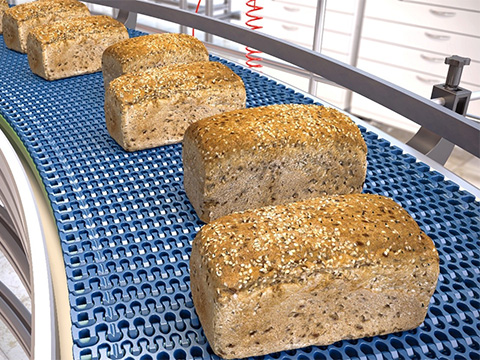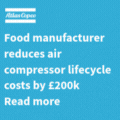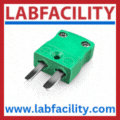
Posted to News on 23rd Jun 2025, 09:00
Helping bakery hygiene rise to the challenge
According to experts from Regal Rexnord, the best way to improve hygiene in bakeries is not just through cleaner materials or easier access, but by reducing the number of potential failure points across the system as a whole.

For modern industrial bakeries, hygiene is an ingredient that's just as vital to their success as flour, eggs, or sugar. From rising standards in food safety to growing pressure on uptime and efficiency, easy cleanability has become a major concern for manufacturers throughout the sector.
Add to that the demand for faster throughput, reduced environmental impact, and minimal maintenance, and it's clear why so many equipment suppliers are rethinking how they support hygiene in design.
"Cleanability is no longer a bonus, it's a baseline expectation," explains Fabrizio Camparini, Product Marketing Manager Food and Beverage - Regal Rexnord. "But hygiene improvements are most effective when they go hand-in-hand with simpler maintenance and better uptime. That's where a smart design approach makes the difference."
Cleanliness and reduced complexity
Bakeries face a familiar dilemma. On the one hand, they must meet strict hygiene standards, often requiring regular washdowns using high-pressure water or chemical agents. On the other, they can't afford extended downtime. Components that are difficult to access, disassemble, or clean can slow down production and raise the risk of contamination, particularly in spiral coolers, proofers, and washdown areas.
To make matters more complex, manufacturers of bakery lines need to achieve upfront affordability, while also ensuring reliability and long-term efficiency. Balancing those needs is no easy task.
One way the industry is responding is through engineering solutions that reduce maintenance, eliminate contamination risks, and support effective cleaning from the outset. From bearings to geared motors, every component has a role to play in production and maintaining hygienic conditions without compromising reliability or ease of use.
For example, the System Plast Nolu-Clean bearing unit is made from solid plastic and includes an antimicrobial additive. Its smooth, sealed design eliminates crevices or sink areas where food debris, moisture, or bacteria could accumulate, making it especially well-suited for environments with frequent washdowns. With no exposed fasteners or lubrication points, it's engineered for fast, thorough cleaning and reduced maintenance demands.
In stainless-steel applications, Sealmaster IP69K-rated bearings offer similar benefits. Designed for high-pressure washdown environments, these units feature corrosion-resistant housings and a fully sealed internal structure that keeps contaminants out and prevents grease from escaping. Because they're lubricated for life, there's no need for re-greasing, reducing both risk and downtime.
Elsewhere in the drivetrain, Bauer HiflexDrive geared motors are available in both stainless-steel and aseptic-coated variants, designed specifically for use in hygienic zones. The aseptic version, frequently supplied in blue, a preferred colour in the baking sector due to its high visibility, features a smooth, non-ventilated housing that resists residue build-up and makes it easy to clean.
Meanwhile, the Boston Gear Gen 2 SS700 worm gearboxes, also rated to IP69K, are ideal for operating in washdown-heavy applications. Their robust stainless-steel construction and sealed internals ensure long-term reliability in the face of repeated exposure to water, chemicals, and temperature variation.
"It's not just about meeting standards," says Camparini. "It's about making it easier for operators to do their job, day in, day out. That's what these products are designed for."
More than the sum of its parts
These individual component-level innovations, when considered together, contribute to significant broader operational benefits. They directly enhance a facility's Overall Equipment Effectiveness (OEE) by improving availability (less downtime), performance (consistent operation), and quality (reduced risk of contamination).
There are also tangible sustainability gains. Longer-lasting parts inherently reduce waste from replacements. More efficient cleaning processes, facilitated by hygienically designed equipment, can lead to a reduction in water and chemical consumption. Moreover, modern, efficient geared motors contribute to lower energy usage, further supporting a facility's environmental goals.
Increasingly, the industry is recognising the advantage of a more holistic or systems-based approach to equipment specification. Rather than viewing components in isolation, sourcing multiple compatible, hygienically designed elements from a single knowledgeable supplier, such as Regal Rexnord, can simplify the integration process and optimize the performance of the entire production line.
This philosophy encourages a shift from merely seeing individual parts to spotting unlimited possibilities for system-wide improvement and efficiency gains.
The future of hygienic manufacturing in baking
The drive for even stricter hygiene standards, coupled with trends towards greater automation and data-driven manufacturing, shows no sign of slowing. The future of baking will undoubtedly rely on continued innovation in materials science, component design, and integrated system technology.
As the industry evolves, the ability to produce safe, high-quality products efficiently and sustainably will increasingly depend on these critically important ingredients of hygienic design and engineering excellence.






